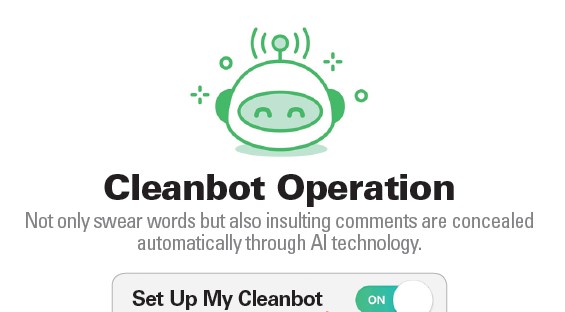Sungkyunkwan University (SKKU) has always had a public discourse and mutual communication tradition. The history dates back to the Joseon Dynasty when Yusaengs embarked on political participation and governing. In today’s SKKU, various public spheres continue to exist. Hence, the Sungkyun Times (SKT) will explore these spheres and discuss the efforts needed to facilitate better public discussions.
Active Youth-Led Public Discourses
-With the Voice of Struggle
The Public Opinion Committee defines public opinion as the thoughts of engaged citizens who have done their due diligence to become fully informed, not intuitive feelings. Active public discourse has centered around the youth in universities. Since the 1980s, university students have fostered a sense of solidarity towards the democratization movement, making the university campus function as a public sphere. For instance, in 1980, the student council of Chonnam National University stood up against the dictatorial government. Furthermore, democracy protests spread nationwide, and students started to put up posters called daejabo as a tool of resistance. Students could engage in public conversations through daejabo, receiving information through one and creating another. Nowadays, public discussion in universities encompasses both online and offline platforms. For example, Sogang University has developed a public forum fit for the modern era, starting with its official Facebook page in 2011 and developing its online community called Sodam. In cases where there is no official university community, the Everytime application, an anonymous community among campus peers, has become an online public discourse platform. It has played as a university’s public sphere, helping students discuss issues like the #MeToo movement on campus and bringing various campus issues to the surface.
-Public Spheres of SKKU
SKKU offers various forms of public discourse platforms. The 55th student council, SKKUP, leads the Central Operative Committee (COC), which consists of presidents of SKKUP and student representatives from major departments and club associations. COC is one of SKKU’s official public spheres, which evaluates, discusses, and resolves issues on campus. To minimize the limitations of offline public discourse, SKKUP opens SKKU Place every month. It aims to investigate the improvements that SKKUP can make and reduce the drawbacks of a public forum based on student representatives. Additionally, SKKUP expands the scope of public discourse, for example, by conducting an online survey regarding the entrance of Jongno 07 buses on campus. On the other hand, Everytime facilitates users to actively participate in online discussions using anonymity, effectively serving as a platform for public discourse. Since the closure of SKKU’s original online community, Skkulove, most SKKU students are using Everytime as their preferred platform. Everytime has established itself as a small public discourse arena within the university since it makes students publicize campus issues, discuss them with autonomy, and create a social consensus. Lee Seo-yeon (Freshman, Social Sciences) told the SKT, “I could realize the poor quality of Mom’s Touch menu on campus and its complaint process through Everytime.” Similarly, each SKKU public forum contributes positively to the students.
Inconvenient Truth about the SKKU Public Forum
-Is It a Real SKKU-Up?

There are two main problems with the public forum led by SKKUP. First, given the responsibility on behalf of students, SKKUP occasionally fails to raise and resolve diverse concerns regarding proposals that consist of debatable issues. For instance, the Grade Point Average (GPA) revision policy was implemented on July 13th, but SKKUP has not addressed several main issues since the revision. There have been concerns that such a quick modification in GPA calculation might provoke grade inflation and reduce the validity of GPAs. In this situation, SKKUP, which has direct access to school headquarters, should monitor public opinion and address such concerns. They should have also paid attention to opposing viewpoints, as taking one side may lead to neglecting the other perspective. However, SKKUP has not brought up these diverse perspectives. Furthermore, there are restrictions on accessibility within the public spheres of the student council. Last year, the 54th student council, Spring, opened a public online discussion platform called Sungkyunin Baeginso to address the limitations. However, due to constraints in implementing website functionality, students had to use their names to participate, contrary to the original plan of allowing both names and anonymous nicknames in the platform. Additionally, the requirement of getting 100 or more approvals for public discourse and the lack of proactive promotion led to the platform’s inability to address the issue of accessibility. Despite the failure, there is currently no online platform to resolve the accessibility problem.
-Extreme Hatred Every Time
While Everytime is not a platform intended for public discourse, it can be regarded as one since it enables public discussion among students. However, Everytime has significant obstacles that hamper healthy online debate culture. As an online community with autonomy and anonymity, Everytime requires less responsibility to users on constructive discussions. This leads to the spread of indiscriminate hatred and irrational beliefs. In fact, users often engage in posts that fuel gender conflicts, using hate speech and mocking various tragedies. To solve the issues arising from anonymity, Everytime introduced a user reporting system; however, this system has been abused by some users as a means to attack other users. If multiple reports accumulate against a post, the system automatically deletes it, and the user may face restrictions on app usage. Moreover, the automatic censorship system keeps deleting posts that contain certain words without considering their context. Such loopholes in the system can hinder the participation of marginalized individuals in the public discourse, as they might fear becoming targets of discrimination and prejudice based on gender, race, or region.
To Form a Healthier Public Sphere
-Guidelines to Upgrade SKKUP
Relaunching Sungkyunin Baeginso within the Information and Communication Team of SKKUP would help SKKUP to hear students’ voices. Then, SKKUP could facilitate student engagement as a more approachable and transparent sphere. For example, the Seoul Metropolitan Government gathers public feedback on policies through an online public forum called Seoul City Asks, simultaneously fostering a healthy public discourse. Likewise, SKKUP should follow the system and gather three parts of balanced public opinion: pro, con, and neutral. Furthermore, in order to ensure transparency, SKKUP should perform offline public hearings on agendas that have already reached a reasonable level of consensus. This measure will allow SKKUP to gather various viewpoints and encourage students to speak about their concerns, for instance, the validity of the GPA caused by the policy reform. While efforts are necessary within SKKUP, the student press of SKKU should also properly collaborate to examine SKKUP from an external perspective, as participatory democracy in SKKU will begin with the role of the press.
-Be Cleaner and Smarter with AI
Everytime can embrace innovative Artificial Intelligence (AI) technologies to form a community where everyone can share a constructive public discourse with autonomy. According to the 2023 statistics by Naver, the exposure rate of negative comments was 8.9%, the lowest level since the introduction of Cleanbot, which detects malicious comments by analyzing the context. Jang Bo-won (Freshman, Humanities Sciences) stated, “I have rarely faced nasty comments since I started to use Cleanbot.” In addition, Kakao reported that derogatory comments decreased by one-third compared to before the launch of Safebot in Open Chat Auto. Furthermore, Everytime may analyze texts based on contextual understanding rather than the number of reports or the usage of certain terms by modeling such technologies. Simultaneously, Everytime must find the proper balance of censorship and freedom, as AI-based censorship might hamper the free flow of ideas. With fostered regulations, users must keep the attitude that they can bind themselves instead of blinding themselves. Another alternative solution would be reestablishing SKKU’s online community to stir up a constructive conversation under a student-run system.

Daejabo spearheaded the youth’s resistance to the dictatorship in the 1980s, but today, numerous online communities are taking a leading role. Although SKKU has several public forums, it is difficult to witness healthy public discourse. However, if discussions for a healthier public sphere continue to rise, it will be possible to discuss mutual coexistence beyond disagreements and conflicts.
